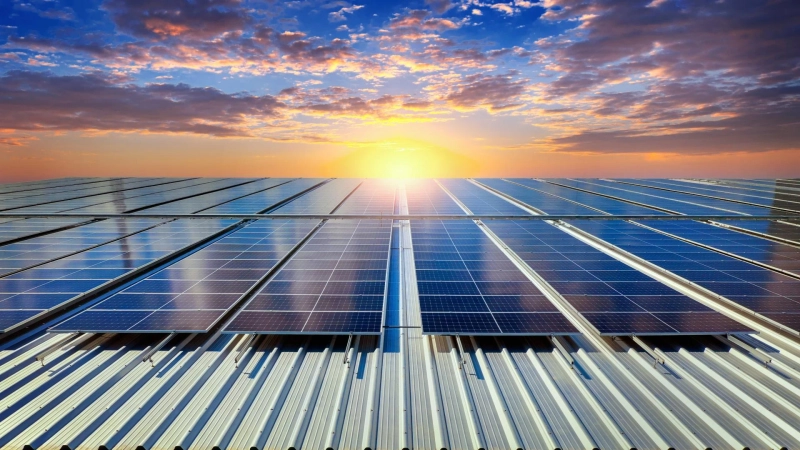When exploring solar energy systems, the terms "solar modules" and "solar panels" often come up interchangeably, leading to confusion. However, these terms represent distinct components of solar technology. Understanding the subtle differences between them can help you make informed decisions when investing in solar power.
This guide will unravel the differences between solar modules and solar panels, provide context for their applications, and highlight the importance of choosing the right solution for your energy needs. By the end, you'll have a clear understanding of these essential components, empowering you to maximize solar energy’s potential.
What Are Solar Modules and Solar Panels?
Solar Modules
Solar modules are the foundational components of solar power systems. Each module comprises interconnected solar cells, usually made of silicon, designed to convert sunlight into direct current (DC) electricity. These solar cells are encapsulated in a protective frame, ensuring durability against environmental elements. Think of solar modules as the "building blocks" of solar power systems.
Solar Panels
Solar panels, on the other hand, are essentially a collection of one or more solar modules assembled together to form a larger pre-wired system. They often include mounting systems, making installation faster and more convenient. Simply put, solar panels are the unit ready-to-go for installation and power generation.
Key Takeaway
- Modules are individual units converting sunlight to electricity.
- Panels are assemblies of modules prepared for system integration.
The Differences Between Solar Modules and Solar Panels
Now that we’ve defined the two, let's examine what sets them apart:
Size and Structure
- Solar Modules
Smaller, often compact structures made of interconnected solar cells. Their wattage ranges from a few watts to several hundred watts.
- Solar Panels
Larger systems composed of multiple solar modules. Panels are designed for higher wattages, often exceeding several kilowatts, capable of powering residential and commercial settings.
Functionality and Design
- Solar modules are primarily responsible for capturing sunlight and converting it into DC electricity.
- Solar panels often include additional components such as inverters and optimizers for seamless integration into solar power systems.
Applications
- Solar Modules:
Frequently used in smaller standalone systems like calculators, lighting systems, or portable charging devices.
- Solar Panels:
Ideal for large-scale installations such as residential rooftops, commercial solar projects, and even utility-scale solar farms.
Installation
- Modules are installed individually, requiring separate wiring and mounting hardware.
- Panels simplify installation as they come pre-assembled with interconnected modules, reducing complexity and time on-site.
Practical Usage of Terms
The term "solar panel" is more commonly understood by consumers, while "solar module" is considered technically precise and often used in manufacturing and professional circles.
Solar Modules vs Solar Panels Comparison Table
Aspect
Solar Module
Solar Panel
Size
Compact, smaller wattage (few watts - hundreds)
Larger, higher wattage (kilowatts)
Primary Use Case
Small devices or standalone systems
Residential rooftops, commercial buildings
Installation
Requires individual mounting and wiring
Comes pre-assembled for simpler installation
Market Associations
Used in technical contexts or in manufacturing
Widely used consumer-facing term
How Choosing the Right Component Impacts Energy Efficiency
Both solar modules and solar panels are essential, but their effectiveness depends on your specific application. Here’s how:
- For Small Off-Grid Systems
Solar modules are ideal because of their compact size and ability to power specific devices. For example, a solar module can be used to illuminate small garden lights or standalone battery systems.
- For Grid-Connected Systems
Solar panels are better suited here due to their larger size and capacity. They can supply the necessary energy to power households, warehouses, and other grid-tied applications.
Added Benefits of Solar Energy Components
Harnessing solar energy through modules and panels offers considerable advantages, including:
- Cost Savings: Both systems reduce electricity bills and may qualify for government tax incentives or rebates.
- Sustainability: Renewable energy solutions contribute to a healthier planet by reducing greenhouse gas emissions.
- Longevity: Durable construction withstands different climate conditions, requiring minimal maintenance.
- Flexibility: Suitable for various applications, from small gadgets to massive solar farms.
Tailoring Your Solar System With Innovative Tools
When planning a solar installation, considering your geographic location and sunlight availability is critical for optimizing energy output. This is where resources such as a solar tilt angle calculator come into play. Adjusting the tilt angle of solar panels or modules ensures maximum sunlight exposure, making your system more efficient.
Our solar tilt angle calculator simplifies this process, offering precise recommendations tailored to your location. Take advantage of this tool to enhance your installation's efficiency and ROI.
Interrelated Context From Our Previous Article
Understanding Costs
If you're planning to invest in solar, our recent article, The Average Cost of Solar Panels, breaks down the financial aspects of installation. It’s a must-read for anyone budgeting for solar projects.
Questions You Should Be Asking
Here are some frequently asked questions about solar modules and solar panels to help clear up any lingering confusion:
Are solar modules and panels the same thing?
No, solar modules are the individual units, while solar panels are assemblies that include multiple modules. Panels are more prepared for installation.
Which is better, modules or panels?
Neither is inherently better; it depends on the scale and nature of the project. Panels are great for larger systems, while modules are suited for small applications.
How many solar modules make up a panel?
The number of modules in a panel varies by manufacturer and desired wattage output. Typically, a solar panel will include several interconnected modules.



